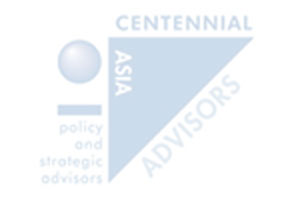- April 4, 2022
- Posted by: admin
- Category: Centennial Asia Insights
No Comments

Russia-Ukraine war: India caught in a geostrategic bind
- India is the biggest loser in the Russia-Ukraine war from an economic and geostrategic standpoint. India’s reliance on Russian arms and historically warm relations explain Delhi’s pushback against calls to take a stand on the war.
- Near-term, a rapture in the Russo-Indian symbiotic relationship is not likely. India needs more time to diversify away from Russian arms. The premise of importing Russian crude at a discount is a further sweetener. Russia, acutely aware of its reliance and lop-sided relationship with China, will be keen to keep India onside to balance against China as well.
- On the economic front, there may be small positives from soaring commodity prices. Booming wheat exports represent a small positive in the grand scheme of things.
- But the fertiliser subsidy bill looks set to climb as potash prices surge. There is limited room to cut fuel taxes, leaving consumers to feel the pinch. And a widening import bill looks set to follow, entailing a deterioration in the external accounts.
Thailand: Fall of Prayut government could presage wider instability
- There are two threats to Thai political stability. One is the infighting within the establishment, which could precipitate early elections. The other is a surge in protest activity as anti-establishment forces renew their push for fundamental social and political reforms.
- There is pressure for early elections because of the instability of the coalition government. The opposition is machinating to topple the government in the coming months. Premier Prayut will seek to complete his term which officially ends in Mar 23 by offering compromises to his opponents.
- The risk of deeper, longer-term political instabilities arises from the deep fault lines in Thai society that the ruling establishment has avoided addressing. Instead, it has doubled up on repression, which raises the risk of bottled-up resentments eventually exploding into crisis.
Highlights from the CAA Weekly Table:
- China: As the threats to economic growth and financial stability grow, it is concerning that the policy tools do not seem to be as effective as before.
- South Korea: The discernible loss of momentum in manufacturing and investment activity in February can only be partly explained by base effects. Consumer activity is unsteady.
- Indonesia: Underlying economic indicators are improving, with business confidence at an 8-month high. But inflationary pressures are mounting.
- Thailand: Economic momentum flagged in February as we had expected. Tourist arrivals are only edging up slowly, putting our expectation of a tourism-fuelled recovery at risk.
- Malaysia: The central bank remained confident about recovery, buoyed by the tech cycle, resumption of travel, improving labour market conditions and continued policy support
- Philippines: Upbeat high-frequency activity indicators affirm our view for a strong economic showing this year.
Read more: CAA-Weekly04-4-2022.pdf
4-Apr-2022
